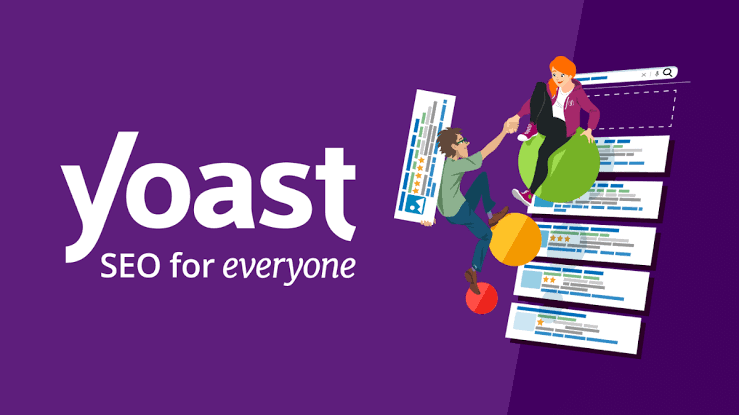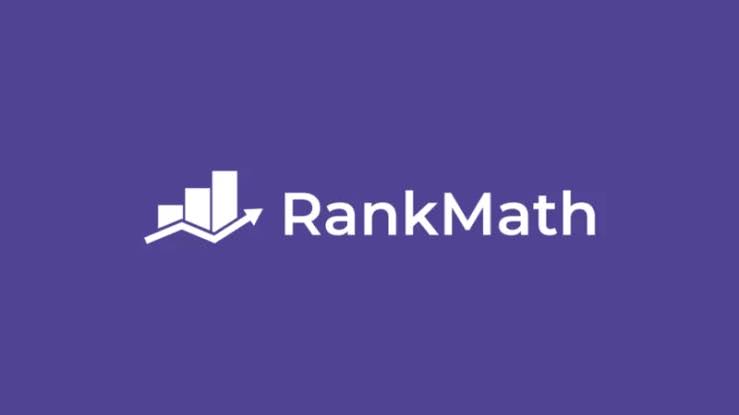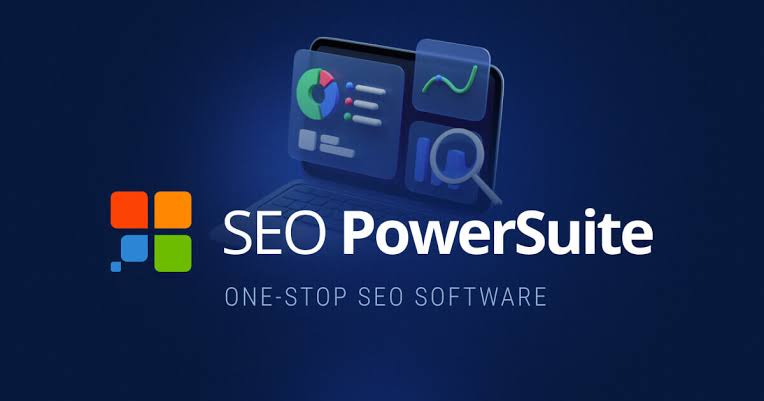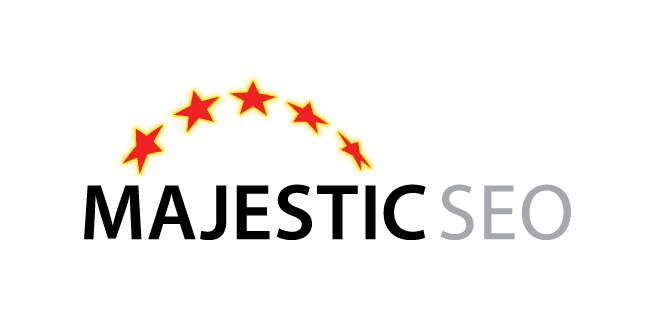Top 7 Best SEO Tools for Beginners
SEO tools are software applications designed to help website owners and marketers optimize their online presence. They provide essential data and insights into keywords, backlinks, and site performance, enabling users to improve their search engine rankings. For beginners, these tools are crucial as they simplify complex SEO tasks, offering user-friendly interfaces and actionable recommendations. By leveraging SEO tools, newcomers can effectively identify opportunities for improvement, track their progress, and understand the competitive landscape, ultimately enhancing their website’s visibility and traffic.
What Are The Best Keyword Research Tools for Beginners?
Keyword research tools are essential for anyone looking to make an impact online. They help you identify what your audience is searching for. Think of them as your trusty sidekicks in the digital realm. Just like knowing your enemy is half the battle, knowing the right keywords is key to winning over search engines.
These tools provide insights into the words and phrases people type into search engines. By using them, you can tailor your content to match what users want to find. Whether you’re blogging, running an e-commerce site, or optimizing a business website, these tools will help you rank higher.
When to Use Keyword Research Tools?
You should use keyword research tools at several stages of your online journey.
First, use them before creating any content. This way, you can pinpoint exactly what your audience is interested in. Understanding their needs is crucial. You want to craft content that resonates with them, right?
Secondly, revisit these tools when updating existing content. Search trends change. What worked last year might not work this year. Regularly checking in can keep your content relevant and engaging.
Lastly, keyword research should be an ongoing practice. The digital landscape is ever-changing. New keywords pop up regularly. Staying on top of these trends can give you a significant advantage over competitors.
How Do Keyword Research Tools Work?
So, how do these magical tools work? They analyze vast amounts of data from search engines.
When you enter a keyword or phrase, the tools show you related keywords. They provide information on search volume, competition, and relevance.
Search volume tells you how many people are searching for a particular keyword. High search volume is great, but it often means more competition. You’ll have to work harder to rank for those keywords.
Competition shows how many other sites are targeting the same keywords. Lower competition keywords are often easier to rank for, making them gold for beginners.
Additionally, many keyword tools provide suggestions based on your input. They can help you discover new keywords you might not have considered. This way, you can broaden your content strategy.
Where Can Keyword Research Tools Be Applied?
Keyword research tools can be applied in various scenarios.
First and foremost, they are essential for blog posts. If you want your blog to be seen, knowing the right keywords is crucial. These tools help you optimize your headlines and content. This attracts more visitors and keeps them engaged.
Next, for e-commerce websites, these tools help in product descriptions. You want to ensure that customers can find your products easily. By targeting relevant keywords, you can drive traffic directly to your product pages.
You can also use keyword tools for social media posts. Social platforms are increasingly becoming search engines themselves. Using popular keywords can enhance visibility and engagement on these platforms.
Finally, keyword tools are beneficial for SEO audits. They help analyze existing content, ensuring that you are targeting the right keywords. This keeps your site in top shape, ready for search engine crawlers.
Can Keyword Research Tools Suggest Long-Tail Keywords?
Absolutely! Keyword research tools can suggest long-tail keywords.
Long-tail keywords are phrases typically longer and more specific. They might have lower search volume, but they often lead to higher conversion rates. People searching with these terms usually know what they want.
For example, instead of targeting “shoes,” you might target “best running shoes for flat feet.” This specific phrase attracts users who are further along in the buying process.
Most keyword tools allow you to filter results based on length. You can easily find long-tail keywords that match your niche. These keywords are invaluable for creating targeted content that meets specific user needs.
4 Popular Keyword Research Tools
Now, let’s talk about some of the popular keyword research tools you can use. Each of these tools offers unique features and benefits.

1. Google Keyword Planner
Google Keyword Planner is a classic choice. It’s free and user-friendly. You can access it with a Google Ads account.
This tool allows you to discover keywords and see search volumes. You can get insights into competition and even find related keywords. It’s great for beginners who are just starting.
2. Rankpro
Rankpro is another excellent option. This tool specializes in keyword tracking. It provides insights into how your keywords are performing over time.
With Rankpro, you can easily monitor ranking for specific keywords. This allows you to adjust your strategies based on performance. It’s perfect for those who want to stay on top of their game.

3. Ubersuggest
Ubersuggest is a fantastic free tool developed by Neil Patel. It offers keyword suggestions, search volume, and competition data.
Ubersuggest’s user-friendly interface makes it easy to navigate. You can discover content ideas and even analyze competitor keywords. It’s a great resource for beginners and seasoned pros alike.

4. Ahrefs Keyword Explorer
Ahrefs Keyword Explorer is a robust tool. It’s not free, but it’s worth the investment.
Ahrefs provides in-depth analysis of keywords. You can see search volume, keyword difficulty, and even click-through rates. It also offers unique features like content gap analysis. This helps you identify opportunities your competitors may be missing.
What Are The Best On-Page SEO Tools for Beginners?
On-page SEO tools are your trusty allies in the quest for better search engine rankings. They help optimize individual web pages to improve their visibility. These tools focus on content and HTML source code. They ensure that every aspect of your page is fine-tuned for both users and search engines.
Imagine your website is a magic spell. On-page SEO tools are like the ingredients you need to make it work. They ensure everything blends perfectly. With the right mix, you can attract more visitors and keep them engaged.
So, let’s dig deeper into the realm of on-page SEO tools and how they can help you shine online.
When to Use On-Page SEO Tools?
Knowing when to use on-page SEO tools is essential. Use these tools at various stages of your website’s life.
First, deploy them during content creation. When you’re writing a new blog post or page, on-page tools can guide you. They help you optimize headings, meta descriptions, and keyword placement right from the start.
Next, use these tools when updating existing content. Regularly refreshing your content keeps it relevant. SEO trends evolve. Keywords shift. On-page tools help you adapt and optimize your content accordingly.
You should also turn to these tools for site audits. Regular checks can identify areas for improvement. They help you find technical issues and content gaps. This ensures your website remains in top shape for search engines.
Finally, if you notice a drop in traffic, it’s time to use on-page SEO tools. They can analyze your content and identify what went wrong. This proactive approach can help you regain lost visibility.
How Do On-Page SEO Tools Help?
On-page SEO tools offer a variety of benefits that can enhance your website’s performance.
First, they help optimize your content. Tools analyze your text, suggesting keyword placements and related terms. This ensures you’re targeting the right audience. They provide real-time feedback, allowing you to make changes on the fly.
Second, these tools help improve user experience. They guide you in structuring your content effectively. Clear headings, bullet points, and internal links are vital. A well-structured page keeps visitors engaged. It encourages them to explore more.
Third, on-page tools assist in optimizing meta tags. Meta titles and descriptions are crucial for search engine results. These tools provide suggestions for compelling meta tags that attract clicks. They ensure your tags are keyword-rich and relevant.
Lastly, they help with technical SEO elements. Page speed, mobile-friendliness, and URL structure are key factors for ranking. On-page tools often include checks for these aspects. They ensure your site meets the necessary criteria for search engines.
Where Can On-Page SEO Tools Be Integrated?
On-page SEO tools can be integrated into various platforms and workflows.
Most notably, many of these tools come as plugins for content management systems (CMS) like WordPress. For example, plugins like Yoast SEO and RankMath make on-page optimization a breeze. They provide suggestions directly in the content editor.
You can also use these tools alongside your site-building platforms. If you’re using website builders like Wix or Squarespace, some tools offer integrations. This helps you optimize without needing advanced technical skills.
Additionally, many on-page SEO tools work in conjunction with analytics platforms. By connecting your analytics data, you can gain insights into user behavior. This allows you to adjust your content based on real-time feedback.
Furthermore, on-page SEO tools can be integrated into your overall SEO strategy. Combining them with keyword research tools can create a robust SEO framework. You can align your content strategy with audience search intent. This integration maximizes your chances of ranking higher.
Can On-Page SEO Tools Provide Automated Suggestions?
Yes, many on-page SEO tools offer automated suggestions.
These suggestions make the optimization process more efficient. They save you time and effort, allowing you to focus on creating great content.
For instance, tools like Labrika analyze your content as you write. They provide real-time feedback on keyword usage and structure. This helps ensure that your content is well-optimized before hitting publish.
Yoast SEO is another tool that offers automated suggestions. It provides a traffic light system. This indicates how well your content meets SEO criteria. You get green for good, orange for needs improvement, and red for poor performance. This visual guide makes it easy to see what needs work.
RankMath goes a step further by allowing you to optimize for multiple keywords. It gives suggestions based on your chosen keywords and tracks their performance. This feature enables you to fine-tune your content effectively.
Overall, automated suggestions are valuable. They make it easier for beginners to understand on-page SEO. Even experienced users can benefit from these features. They ensure your content remains optimized and competitive.
4 Most Popular On-Page SEO Tools
Let’s dive into some popular on-page SEO tools that can help you level up your website’s performance. Each of these tools has unique features that cater to different needs.

1. Yoast SEO
Yoast SEO is one of the most popular SEO plugins for WordPress. It’s user-friendly and packed with features. Yoast provides real-time analysis as you write. It suggests improvements for readability and keyword usage.
One of the best features is its snippet preview. This shows you how your page will appear in search results. You can tweak titles and descriptions for maximum appeal.
Yoast also offers a premium version with advanced features. This includes redirect management and internal linking suggestions. Overall, it’s a fantastic tool for beginners and pros alike.
2. Labrika
Labrika is an on-page SEO tool that focuses on content optimization. It provides in-depth analysis of your web pages. You can see how well your content ranks against competitors.
Labrika offers keyword suggestions and checks for readability. It helps you ensure your content is both engaging and optimized. The tool’s user interface is straightforward, making it easy to use for beginners.
Labrika also features a keyword density checker. This allows you to balance keyword usage without overstuffing. The tool helps you maintain a natural flow in your writing.

3. RankMath
RankMath is a powerful SEO plugin for WordPress. It’s known for its versatility and advanced features. RankMath allows you to optimize for multiple keywords per post. This is a game changer for content creators.
The plugin offers built-in schema markup, which enhances your visibility in search results. It also provides detailed SEO analysis and performance tracking.
RankMath integrates with Google Search Console, giving you insights into your website’s performance. The user-friendly interface makes it easy to navigate and optimize your content effectively.

4. SEO PowerSuite
SEO PowerSuite is a comprehensive SEO toolkit. It combines several tools in one package. You get tools for keyword research, rank tracking, and on-page optimization.
With SEO PowerSuite, you can conduct in-depth site audits. It analyzes your pages and provides actionable recommendations. This helps you optimize your content and improve overall SEO performance.
The software includes a project management feature. This allows you to track multiple websites simultaneously. It’s ideal for agencies and freelancers managing various clients.
What Are The Best Technical SEO Tools for Beginners?
Technical SEO tools are essential for optimizing your website’s backend. They help improve the technical aspects that affect your site’s visibility. Think of these tools as the unsung heroes of the SEO world. They work behind the scenes to ensure everything runs smoothly.
When we talk about technical SEO, we’re focusing on aspects like site speed, mobile-friendliness, indexing, and crawlability. These elements are crucial for search engines to understand and rank your content effectively.
Without proper technical SEO, even the best content might go unnoticed. So, let’s dive deeper into the importance of technical SEO tools and how they can elevate your website.
When Are Technical SEO Tools Necessary?
Technical SEO tools are necessary at several key points in your website’s lifecycle.
First, use them when launching a new site. Before going live, it’s vital to ensure everything is optimized. Technical SEO tools can help you identify issues that could hinder your site’s performance.
Next, regularly run audits on existing websites. Just like any other machine, websites need maintenance. Over time, technical issues can arise. Regular audits can help you find and fix these problems before they impact your traffic.
You should also use these tools whenever you make significant changes to your site. For example, if you redesign your site or migrate to a new platform, an audit is crucial. It ensures that all technical aspects are in check.
Additionally, if you notice a drop in search rankings or traffic, it’s time to investigate. Technical issues could be the culprit. Tools can help you diagnose and resolve these problems quickly.
How Do Technical SEO Tools Work?
Technical SEO tools work by analyzing various aspects of your website’s infrastructure.
When you enter your website URL into a tool, it runs a series of tests. These tests examine your site’s structure, code, and performance.
For example, tools can check for broken links, missing meta tags, and duplicate content. They also analyze page speed and mobile responsiveness.
Most tools provide a report detailing any issues they find. This report usually includes actionable recommendations. You can then prioritize which issues to address based on their impact on your site’s performance.
In essence, these tools take the guesswork out of technical SEO. They provide you with clear insights and direction on what needs fixing.
Where Can You Use Technical SEO Tools?
You can use technical SEO tools in various places and for different purposes.
First, many of these tools are cloud-based, meaning you can access them from anywhere. This flexibility allows you to run audits anytime, whether you’re at home or on the go.
If you’re working on a CMS like WordPress, some tools offer plugins. These plugins can integrate directly into your dashboard. This makes it easier to monitor your site’s health regularly.
You can also use these tools alongside analytics platforms. Integrating them with Google Analytics or Google Search Console provides a comprehensive view. This allows you to see how technical issues affect your traffic and performance.
Finally, technical SEO tools can be used in conjunction with other SEO strategies. Pair them with keyword research tools or on-page SEO tools for a holistic approach. This integration ensures your website is optimized from every angle.
Can Technical SEO Tools Help With Core Web Vitals?
Absolutely! Technical SEO tools are invaluable for monitoring and improving Core Web Vitals.
Core Web Vitals are essential metrics that measure real-world user experience. They focus on loading performance, interactivity, and visual stability. Google uses these metrics as ranking factors, making them critical for SEO success.
Technical SEO tools can analyze your site’s performance concerning these metrics. For example, they can measure the Largest Contentful Paint (LCP), First Input Delay (FID), and Cumulative Layout Shift (CLS).
These tools provide insights into which elements are slowing down your site. They can identify large images, unoptimized scripts, or poor server response times. With this information, you can take steps to improve your site’s performance.
By optimizing for Core Web Vitals, you enhance user experience. A fast, responsive site keeps visitors engaged. This can lead to lower bounce rates and higher conversions.
4 Most Popular Technical SEO Tools
Now let’s look at some popular technical SEO tools that can help you enhance your website’s performance. Each tool offers unique features that cater to different needs.
1. Siteguru
Siteguru is a fantastic tool for website audits. It helps you identify technical SEO issues quickly. With a simple interface, you can run a comprehensive audit of your site in minutes.
Siteguru analyzes factors like page speed, broken links, and meta tags. It generates an easy-to-understand report. You can prioritize fixes based on their impact on your site’s performance.
One standout feature of Siteguru is its tracking capability. You can monitor your progress over time. This helps ensure that your SEO efforts are paying off.

2. Google Search Console
Google Search Console is an essential tool for any website owner. It’s a free service that helps you monitor and troubleshoot your site’s presence in Google search results.
Search Console provides valuable insights into how Google crawls and indexes your site. It alerts you to any issues, such as crawl errors or security problems.
You can also use it to submit sitemaps and monitor your Core Web Vitals. This makes it a vital tool for optimizing your site’s technical performance.

3. Screaming Frog SEO Spider
Screaming Frog SEO Spider is a powerful desktop application. It crawls your website like a search engine would, providing detailed insights.
This tool is excellent for identifying broken links, duplicate content, and missing metadata. You can run audits on websites of any size. The free version allows you to crawl up to 500 pages, which is perfect for smaller sites.
One of the best features of Screaming Frog is its customizable settings. You can tailor the crawl to focus on specific elements. This flexibility makes it an invaluable tool for technical SEO analysis.

4. GTmetrix
GTmetrix focuses on website performance. It analyzes your site’s speed and provides detailed reports on how to improve it.
With GTmetrix, you can test your site from different locations. This gives you insights into how your site performs globally.
The tool breaks down performance metrics, such as loading times and total page size. It also offers recommendations for optimization. You can address issues like image size, caching, and script loading order.
GTmetrix also provides a waterfall chart. This visual representation helps you see how various elements load on your page. It’s a fantastic way to identify bottlenecks in your site’s performance.
What Are The Beat Backlink Analysis Tools for Beginners?
Backlink analysis tools are essential in the world of SEO. They help you understand and evaluate the links pointing to your website. Backlinks are crucial for search engine rankings. They signal to search engines that your content is valuable and trustworthy.
Think of backlinks as votes of confidence from other sites. The more high-quality backlinks you have, the more credible your site appears. However, not all backlinks are created equal. Some can actually harm your site’s reputation. That’s where backlink analysis tools come into play.
These tools allow you to monitor your backlink profile. They help you identify both strong and weak links. This information is vital for developing effective SEO strategies. Let’s delve deeper into what these tools do and how they can benefit you.
When to Use Backlink Analysis Tools?
Knowing when to use backlink analysis tools is essential for effective SEO management.
First, use these tools during initial site audits. When you launch a new website, understanding your backlink profile is crucial. This initial analysis helps you identify any existing links. It also helps you spot potential issues that could affect your rankings.
Second, you should regularly analyze your backlink profile. Continuous monitoring is key to maintaining a healthy link profile. This practice allows you to identify new backlinks and evaluate their quality over time.
If you experience a drop in rankings, it’s time to investigate. A sudden drop might indicate harmful backlinks or an increase in competition. Using analysis tools can help you identify these issues quickly.
Also, whenever you engage in link-building campaigns, monitor your progress. After obtaining new backlinks, check their impact on your rankings. This ensures that your efforts are paying off.
Finally, if you’re considering a site migration or redesign, perform a backlink analysis. Understanding how your links might be affected can help you plan for a smooth transition.
How Do Backlink Analysis Tools Work?
Backlink analysis tools work by crawling the web and collecting data about links pointing to your site.
When you enter your domain into a tool, it retrieves information about your backlinks. This includes data like the number of backlinks, referring domains, and the quality of those links.
Most tools provide a comprehensive report that breaks down this information. You can see metrics such as Domain Authority (DA), Page Authority (PA), and anchor text distribution. These metrics help you gauge the quality and relevance of your backlinks.
The tools typically employ algorithms to assess link quality. They consider factors like trustworthiness, relevance, and the site’s overall authority. This helps you identify which backlinks are beneficial and which may be harmful.
Additionally, many tools allow you to compare your backlink profile with competitors. This competitive analysis provides insights into their strategies. You can discover opportunities to improve your own backlink strategy.
In essence, these tools simplify the complex process of backlink evaluation. They give you the insights needed to enhance your site’s credibility and visibility.
Where Can Backlink Analysis Tools Be Applied?
Backlink analysis tools can be applied in various contexts and strategies.
First, they are vital for content marketing strategies. Understanding your backlinks helps you identify which content resonates with audiences. You can create more targeted content based on the type of backlinks you’re receiving.
Next, these tools are beneficial in link-building campaigns. When reaching out for backlinks, you can assess the quality of potential linking sites. This ensures that you’re focusing your efforts on high-authority domains.
You can also use these tools for competitive analysis. Understanding your competitors’ backlink profiles can reveal gaps in your strategy. This helps you identify potential linking opportunities that you may have overlooked.
Additionally, they play a role in reputation management. Monitoring your backlink profile helps you spot harmful links that could damage your reputation. By addressing these issues, you can maintain a positive image.
Lastly, if you’re an agency managing multiple clients, these tools streamline reporting. You can easily generate reports on backlink profiles, making it simple to communicate progress to clients.
Can Backlink Analysis Tools Remove Harmful Links?
Yes, backlink analysis tools can help identify and manage harmful links.
When you analyze your backlink profile, these tools often highlight links that may be harmful. They provide insights into low-quality or spammy sites that link to you. This is crucial for maintaining a healthy link profile.
Once you identify harmful links, you have a few options for addressing them. Many tools offer features that help you reach out to webmasters. You can request the removal of unwanted backlinks directly from the source.
If contacting webmasters isn’t successful, you can use Google’s Disavow Tool. This tool allows you to inform Google that you don’t want certain links to be considered in your ranking. However, use this tool cautiously. Disavowing links can impact your SEO positively or negatively if done incorrectly.
It’s important to regularly monitor your backlink profile. Keeping an eye on your links helps you proactively address any harmful backlinks. This ensures your site maintains its credibility and ranking potential.
4 Most Popular Backlink Analysis Tools
Let’s take a look at some popular backlink analysis tools that can help you manage your link profile effectively. Each of these tools offers unique features that cater to different needs.

1. Ahrefs
Ahrefs is one of the most comprehensive SEO tools available. Its backlink analysis capabilities are second to none. Ahrefs has a massive database of links, making it ideal for in-depth analysis.
With Ahrefs, you can easily see your backlink profile and that of your competitors. The tool provides metrics like Domain Rating (DR) and the number of referring domains. You can also analyze anchor text distribution to understand how your links are presented.
One of the standout features of Ahrefs is its “Site Explorer.” This allows you to dive deep into a specific URL’s backlink profile. You can filter links by various parameters, such as link type and quality. This granularity helps you craft a targeted link-building strategy.

2. Majestic SEO
Majestic SEO specializes in backlink analysis. Its database is one of the largest, providing extensive insights into link profiles.
Majestic offers unique metrics like Trust Flow and Citation Flow. Trust Flow indicates the quality of backlinks, while Citation Flow measures the quantity. This dual perspective helps you understand both the strength and reach of your backlinks.
The tool’s “Site Explorer” allows you to see your backlinks and those of competitors. You can also analyze the overall health of your backlink profile. This feature is great for spotting opportunities for improvement.
3. Ranklytics
Ranklytics is an all-in-one SEO tool that includes backlink analysis features. It’s user-friendly, making it suitable for beginners and advanced users alike.
Ranklytics provides a detailed overview of your backlink profile. You can track new and lost backlinks over time. This historical data helps you understand how your link-building efforts are progressing.
One notable feature of Ranklytics is its competitor analysis. You can compare your backlinks with those of competitors, uncovering new link-building opportunities. The tool also offers insights into anchor text usage, helping you optimize your link strategy.

4. Moz Link Explorer
Moz Link Explorer is another powerful tool for backlink analysis. It provides valuable insights into your link profile and those of competitors.
Moz’s Domain Authority (DA) metric is widely recognized in the SEO community. This score helps you evaluate the strength of your website compared to others.
With Moz Link Explorer, you can see your backlinks, anchor text, and referring domains. The tool also offers a “Link Intersect” feature. This shows you sites that link to your competitors but not to you. This information is vital for identifying new linking opportunities.
What Are The Best Rank Tracking Tools for Beginners?
Rank tracking tools are essential for anyone serious about SEO. They help you monitor your website’s position in search engine results pages (SERPs). This is crucial because your ranking can significantly impact your traffic and visibility.
Think of rank tracking as your personal SEO scorekeeper. These tools let you know where you stand for specific keywords. They provide insights into how your efforts are paying off and where you might need to make adjustments.
Rank tracking tools can track changes over time, giving you a historical perspective. This is vital for understanding trends and the effectiveness of your SEO strategies. By utilizing these tools, you can stay on top of your rankings and keep your website performing at its best.
When to Use Rank Tracking Tools?
Knowing when to use rank tracking tools can make a huge difference in your SEO strategy.
First, use these tools at the beginning of your SEO journey. When you launch a new website or start a new campaign, it’s crucial to establish a baseline. This initial ranking data gives you a reference point to measure future improvements.
You should also regularly track your rankings. SEO is not a one-time effort; it’s an ongoing process. Regular monitoring helps you stay informed about any changes. If you notice a drop in rankings, you can investigate potential issues quickly.
If you’re making significant changes to your website, like redesigning or updating content, use rank tracking tools. These changes can affect your rankings, and monitoring them will help you understand the impact.
Whenever you start a new keyword strategy, rank tracking is essential. It allows you to assess the effectiveness of your targeted keywords and identify opportunities for optimization.
Finally, when conducting competitor analysis, tracking your rankings is important. Understanding where you stand relative to your competitors can help you refine your strategy.
How Do Rank Tracking Tools Track Rankings?
Rank tracking tools use various methods to monitor your website’s position in search results.
When you input a keyword into the tool, it checks the SERPs for that keyword. It searches for your domain and notes its position. Most tools perform this check on a regular schedule, giving you up-to-date information.
Many tools allow you to track rankings on different search engines, including Google, Bing, and Yahoo. This is helpful for understanding where your traffic is coming from and which search engines are most relevant to your audience.
Some advanced tools even track local rankings. This is crucial if your business targets a local audience. They provide insights into how you rank in specific locations, which can influence your local SEO strategies.
Additionally, rank tracking tools often come with historical data. This means they can show you how your rankings have changed over time. Tracking your rankings regularly allows you to visualize trends and assess the impact of your SEO efforts.
Lastly, many tools offer alerts. You can set up notifications for significant changes in your rankings. This ensures you stay informed about fluctuations that could affect your traffic.
Where Can Rank Tracking Tools Track Rankings?
Rank tracking tools can monitor rankings in several contexts.
First, they track organic search rankings. This is the primary function of these tools. They show how well your site is performing for specific keywords in the organic search results.
Many tools also offer tracking for paid search results. If you’re running PPC campaigns, knowing how your ads perform alongside organic results is essential. This helps you understand the overall effectiveness of your marketing efforts.
Local ranking tracking is another crucial area. If you operate a local business, knowing how you rank for local keywords is vital. Some tools provide features specifically designed for tracking local search results, ensuring you can optimize your local SEO strategies.
Additionally, rank tracking tools can monitor rankings for different devices. This is important because search rankings can vary between desktop and mobile. Tracking your performance across devices ensures a comprehensive understanding of your SEO efforts.
Finally, you can track rankings for specific pages on your website. This is useful if you want to assess the performance of individual pieces of content. Understanding which pages rank well can guide your content strategy moving forward.
Can Rank Tracking Tools Track Competitors?
Yes, rank tracking tools can be invaluable for tracking competitors. Understanding how your competitors perform can help you refine your own strategies.
Most tools offer competitive analysis features. You can input your competitors’ domains and monitor their rankings for specific keywords. This allows you to see how you stack up against them in the SERPs.
By analyzing competitors’ rankings, you can identify gaps in your own strategy. If a competitor ranks well for certain keywords, you can assess their content and backlink profiles. This may provide insights into how to improve your own ranking.
Some tools even allow you to set up keyword groups. This feature helps you monitor multiple competitors simultaneously. You can quickly compare your performance with theirs and make data-driven decisions.
Additionally, competitor tracking can reveal trends in your industry. If you notice competitors gaining traction for specific keywords, it might signal new opportunities. You can adapt your strategy accordingly.
Finally, keeping an eye on competitors helps you stay informed about the overall landscape. Understanding how shifts in their strategies affect rankings can guide your decisions. This kind of analysis is essential for staying competitive in a rapidly evolving digital space.
Most Popular Rank Tracking Tools
Let’s look at some popular rank tracking tools that can help you keep an eye on your rankings. Each of these tools offers unique features tailored to different needs.
1. SERPWatcher
SERPWatcher by Mangools is a user-friendly tool designed for tracking keyword rankings. Its intuitive interface makes it easy to set up and start tracking your rankings.
SERPWatcher provides real-time updates on your keyword performance. You can monitor fluctuations and see how they impact your overall SEO strategy. The tool also offers historical data, helping you visualize your ranking trends over time.
One standout feature is its performance index. This metric gives you an overview of your rankings’ health. You can see how many keywords are increasing, decreasing, or stable.
Additionally, SERPWatcher allows you to track rankings for competitors. This gives you a holistic view of your industry landscape. You can identify new opportunities and refine your strategy based on competitor performance.
2. Rankpro
Rankpro is another powerful rank tracking tool that focuses on simplicity and efficiency. It allows you to track your website’s rankings for various keywords easily.
Rankpro offers features like local tracking, making it ideal for businesses targeting specific regions. You can see how your rankings change based on location, which is crucial for local SEO efforts.
The tool also provides detailed reports that you can customize. This is useful for agencies or individuals managing multiple clients. You can present data in a way that is easy to understand and actionable.
Rankpro’s user-friendly dashboard allows you to monitor rankings at a glance. This makes it easy to spot trends and make informed decisions quickly.
3. SEMrush Position Tracking
SEMrush Position Tracking is part of the broader SEMrush suite, making it a versatile tool. It provides comprehensive tracking capabilities for both organic and paid search.
With SEMrush, you can monitor your rankings for various keywords. The tool also allows you to track your competitors’ rankings, offering valuable insights into their strategies.
One of the standout features of SEMrush Position Tracking is its ability to track local and mobile rankings. This ensures you have a comprehensive view of your performance across different platforms.
Additionally, SEMrush provides detailed reports. You can visualize your data in various formats, making it easier to share insights with stakeholders. The tool’s integration with other SEMrush features enhances its overall functionality.
4. AccuRanker
AccuRanker is known for its speed and accuracy in tracking rankings. It provides real-time updates, ensuring you always have the latest data.
The tool allows you to track rankings across different devices and locations. This is crucial for understanding how your audience interacts with your content on various platforms.
AccuRanker also offers a unique feature called “Rank Tracking Alerts.” You can set up notifications for significant changes in your rankings. This helps you stay informed about fluctuations that could impact your traffic.
The user interface is clean and intuitive, making it easy to navigate. AccuRanker’s reports are customizable, allowing you to focus on the metrics that matter most to you.
What Are The Best Content SEO Tools for Beginners?
Content SEO tools are essential for anyone looking to create high-quality content that ranks well in search engines. They help you optimize your content to ensure it meets the needs of both users and search engines. At their core, these tools analyze your content’s performance and provide insights to enhance its visibility.
Think of content SEO tools as your personal writing assistants. They guide you through the process of crafting engaging and optimized content. These tools take into account factors like keyword usage, readability, and overall structure. By using them, you can improve the chances of your content being found by your target audience.
In today’s digital landscape, producing great content isn’t enough. You need to ensure that it reaches the right audience. Content SEO tools help you bridge that gap. They are designed to make the optimization process smoother and more effective. Let’s dive deeper into the world of content SEO tools and how they can benefit you.
When Should You Use Content SEO Tools?
Understanding when to use content SEO tools is crucial for maximizing their benefits.
First, you should use these tools during the content creation phase. When you’re brainstorming or drafting content, having SEO insights can guide your writing. This helps ensure you incorporate relevant keywords and phrases from the get-go.
Second, after you’ve written a piece, these tools are invaluable for optimization. They can analyze your content and suggest improvements. This includes adjustments to keyword density, readability scores, and structural elements like headers and bullet points.
Whenever you update existing content, content SEO tools should be part of your process. As search algorithms change, so do best practices for content optimization. Analyzing and optimizing older posts can help maintain or improve their rankings.
If you’re launching a new website or blog, using these tools from the start is essential. They can help you set up a strong foundation for your content strategy. This includes keyword research and topic planning to ensure your content aligns with your audience’s interests.
Finally, when monitoring your content’s performance, these tools are incredibly helpful. They provide analytics that shows how well your content is doing in terms of traffic and engagement. This data can inform future content strategies.
How Do Content SEO Tools Optimize Content?
Content SEO tools optimize your content through various features and functionalities.
First, they assist with keyword research. These tools help you identify relevant keywords that your target audience is searching for. They often provide data on search volume and competition levels, which is crucial for strategic planning.
Once you have your keywords, content SEO tools help you integrate them effectively into your writing. They provide suggestions on keyword placement, ensuring that your content is both SEO-friendly and natural to read.
Most tools also analyze the readability of your content. They evaluate sentence structure, paragraph length, and overall flow. This is important because user experience plays a significant role in SEO. Content that’s easy to read is more likely to engage readers and keep them on your site.
Another way these tools optimize content is through competitor analysis. They allow you to see what similar content is ranking for. By analyzing top-performing pages, you can identify gaps in your own content and improve upon them.
Finally, many content SEO tools offer optimization checklists. These checklists guide you through the necessary steps to ensure your content is fully optimized before publication. This includes meta descriptions, alt text for images, and internal linking strategies.
Where Can Content SEO Tools Be Applied?
Content SEO tools can be applied in several areas of your content strategy.
First, they are essential for blog posts. Whether you’re writing a how-to guide, a listicle, or an opinion piece, using content SEO tools can enhance your work. They help you optimize for specific keywords and ensure your content resonates with your audience.
These tools are also useful for landing pages. Optimizing landing pages is crucial for conversions. Content SEO tools help you create persuasive, engaging content that encourages visitors to take action.
If you’re producing website copy, these tools can ensure that your content is clear, concise, and optimized for search engines. They help maintain a consistent brand voice while improving SEO performance.
Another area where these tools shine is in e-commerce. Product descriptions benefit greatly from SEO optimization. By using content SEO tools, you can enhance your product descriptions to improve visibility in search results.
Finally, content SEO tools can be applied to social media content. Although social media ranking is different, the principles of optimization still apply. These tools can help you craft engaging posts that encourage interaction and drive traffic back to your website.
Can Content SEO Tools Generate Content Ideas?
Absolutely! One of the most valuable features of content SEO tools is their ability to generate content ideas.
Many tools provide keyword suggestions based on current trends and popular searches. This is particularly useful when you’re brainstorming topics. Instead of relying solely on your creativity, you can leverage data to guide your content creation process.
Some tools analyze existing content performance. They can identify gaps in your current content and suggest new topics that could attract more traffic. By focusing on underrepresented areas, you can position your content as a go-to resource.
Additionally, content SEO tools often include features that track industry trends. This allows you to stay ahead of the curve and create content that addresses current audience interests. Timely content can drive significant traffic and engagement.
Furthermore, many of these tools include a “content planner” feature. This allows you to organize your content ideas and plan your editorial calendar effectively. You can schedule posts around important dates or trending topics to maximize their impact.
By utilizing content SEO tools for idea generation, you can create a robust content strategy that is both data-driven and creative. This combination is key to standing out in today’s crowded digital landscape.
The Most Popular Content SEO Tools
Let’s take a look at some popular content SEO tools that can enhance your content strategy. Each of these tools offers unique features that cater to different needs.
1. SurferSEO
SurferSEO is a comprehensive content optimization tool that focuses on data-driven insights. It analyzes the top-performing pages for your target keywords. This allows you to see what works and how to improve your content.
One standout feature of SurferSEO is its content editor. This tool provides real-time feedback as you write, suggesting keyword usage and structural improvements. It even offers guidelines for word count based on top-ranking pages.
SurferSEO also allows for extensive competitor analysis. You can see how your content stacks up against others in your niche. This data-driven approach helps you identify what needs to be improved for better visibility.
2. SheetMagic
SheetMagic is a unique tool that combines the functionality of spreadsheets with SEO optimization. It helps you organize your content ideas and track your keyword performance effectively.
With SheetMagic, you can create content calendars and track progress on various pieces. The tool allows you to see which topics are resonating with your audience. This helps you refine your strategy and focus on what works.
SheetMagic is particularly useful for teams. It allows for easy collaboration, enabling multiple team members to contribute to the content planning process. This streamlines communication and ensures everyone is on the same page.
3. Frase
Frase is an AI-powered content optimization tool designed to simplify the writing process. It helps you create SEO-friendly content by suggesting relevant topics and keywords based on user queries.
Frase’s content brief feature is particularly useful. It generates a detailed outline based on top-ranking content. This ensures your writing is comprehensive and covers the necessary angles to satisfy search intent.
Additionally, Frase provides analytics on content performance. You can track how your content ranks over time and adjust your strategy accordingly. This feature helps you stay agile and responsive to changes in your audience’s needs.
4. Clearscope
Clearscope is another powerful tool for content optimization. It focuses on helping you create high-quality, relevant content that meets user expectations.
The tool provides keyword suggestions and helps you understand semantic relevance. This ensures that your content addresses the full context of a topic rather than just focusing on a single keyword.
Clearscope’s user-friendly interface makes it easy to navigate. It offers insights on readability and optimization scores, helping you create content that is both engaging and SEO-friendly.
What Are The Best Local SEO Tools for Beginners?
Local SEO tools are essential for businesses that want to attract customers in their geographic area. These tools focus on optimizing your online presence so that you can be easily found by people searching for local services. They help businesses manage their visibility in local search results on platforms like Google and Bing.
Imagine you’re a small coffee shop in a bustling neighborhood. You want locals to find you when they search for “best coffee near me.” This is where local SEO tools come into play. They ensure that your business shows up in local searches, maps, and directories.
Local SEO tools assist in various aspects of optimizing for local search, from managing business listings to gathering customer reviews. They help you stay competitive in your area, attract more foot traffic, and boost online engagement. As more people rely on the internet to find local services, these tools become vital for any small business aiming for growth and visibility.
When Are Local SEO Tools Useful?
Knowing when to use local SEO tools can make a significant difference in your marketing efforts. Here are some scenarios where they shine.
First, local SEO tools are beneficial when you’re setting up a new business. If you’re launching a coffee shop, restaurant, or any local service, these tools can help you establish a solid online presence. They assist in creating and optimizing your Google My Business listing, ensuring that you appear in local searches.
Second, if your business has moved locations or changed names, local SEO tools are crucial. They help you update your information across various platforms to avoid customer confusion. Consistent information is key in local SEO; discrepancies can lead to lost customers.
Third, when running a local marketing campaign, these tools are invaluable. If you’re promoting a new product or service, local SEO tools can help you optimize your listings and ensure your promotions reach the right audience.
If you’re trying to improve your online reputation, local SEO tools can help manage customer reviews. They allow you to monitor what customers are saying about your business and respond promptly. Positive reviews can significantly boost your visibility in local searches.
Lastly, when you’re analyzing your competitors, local SEO tools come in handy. They provide insights into how your competitors are performing locally. This helps you identify gaps in your own strategy and discover opportunities for growth.
How Do Local SEO Tools Help?
Local SEO tools offer a variety of features that help businesses enhance their local search visibility.
First, they help with citation management. Citations are mentions of your business name, address, and phone number (NAP) on other websites. Consistent citations across directories improve your chances of ranking higher in local searches. Local SEO tools streamline this process, ensuring that your NAP is accurate and consistent.
Second, they assist in managing Google My Business (GMB) profiles. These profiles are critical for local SEO. Local SEO tools allow you to optimize your GMB listing by providing insights into what information to include and how to present your business effectively.
Third, many local SEO tools offer review management features. They enable you to monitor and respond to customer reviews across various platforms. Positive reviews boost your credibility, while managing negative ones can help mitigate damage to your reputation.
Fourth, local SEO tools provide keyword analysis specifically for local search terms. They help you discover keywords that potential customers in your area are using. This ensures your content and listings are optimized for the right search terms.
Finally, some local SEO tools offer tracking and reporting features. They allow you to monitor your local search rankings and assess the effectiveness of your SEO efforts. By analyzing your performance, you can make informed adjustments to your strategy.
Where Can Local SEO Tools Be Applied?
Local SEO tools can be applied in various aspects of your online marketing strategy.
First and foremost, they are essential for managing your Google My Business profile. This is the first place potential customers will see when searching for your services. Local SEO tools help you optimize this profile to ensure you provide all relevant information.
These tools can also be applied to online directories. Ensuring your business information is accurate on sites like Yelp, TripAdvisor, and Yellow Pages is crucial. Local SEO tools help you manage and optimize your listings across these platforms.
When creating content, local SEO tools help ensure that your blog posts, landing pages, and website copy are optimized for local search. They guide you on incorporating local keywords effectively, helping you rank for terms specific to your area.
Additionally, local SEO tools can be used in social media marketing. Platforms like Facebook allow businesses to set locations and optimize their profiles for local visibility. Local SEO tools can help you manage these aspects, ensuring consistency across your online presence.
Finally, local SEO tools can be utilized for paid advertising campaigns. If you’re running local PPC ads, these tools can help you optimize your campaigns to target the right audience effectively. They provide insights into local search trends that can inform your ad strategy.
Can Local SEO Tools Automate Citation Building?
Yes, many local SEO tools can automate citation building. This is one of their most valuable features.
Automating citation building saves you time and ensures consistency across multiple platforms. Local SEO tools often have extensive databases of online directories. They can automatically submit your business information to these directories, minimizing the risk of human error.
When you use these tools, they allow you to create, claim, and manage your listings from one central platform. This streamlines the citation process and makes it much more efficient.
Additionally, many local SEO tools provide alerts for changes in your listings. If there’s a discrepancy in your information across platforms, these tools can notify you, allowing you to correct it quickly.
Some tools even offer the ability to generate new citations based on local trends and searches. They analyze which directories are most relevant to your industry and location, guiding you to optimize your presence where it matters most.
Overall, automating citation building with local SEO tools is a game changer. It not only saves time but also improves your local SEO efforts by ensuring accuracy and consistency across the web.
Popular Local SEO Tools
Let’s take a closer look at some popular local SEO tools that can enhance your local search strategy. Each of these tools offers unique features tailored to different needs.
1. BrightLocal
BrightLocal is a leading local SEO tool designed for small businesses and agencies. It offers a suite of features that simplify local SEO management.
BrightLocal’s citation tracking feature allows you to monitor your business listings across various directories. It helps you identify inconsistencies and provides recommendations for corrections.
The tool also includes a Google My Business audit feature. This helps you optimize your GMB listing by providing insights on best practices. You can track your GMB performance and make necessary adjustments to improve visibility.
BrightLocal’s review management feature allows you to monitor customer feedback across multiple platforms. You can respond to reviews and gain insights into your overall reputation.
2. Whitespark
Whitespark specializes in local citation building and management. It provides tools to help businesses find and build local citations effectively.
Whitespark’s citation finder feature allows you to discover where your competitors are listed. This helps you identify new citation opportunities. The tool can also automate the submission process, saving you valuable time.
In addition, Whitespark offers a local rank tracker. This feature helps you monitor your rankings in local search results. You can see how your efforts are impacting your visibility over time.
Whitespark is particularly useful for businesses looking to enhance their local search presence. Its focus on citation management makes it a top choice for local SEO.
3. Ranklytics
Ranklytics is a versatile local SEO tool that combines ranking tracking with citation management. It helps businesses monitor their performance in local search results.
Ranklytics provides insights into your local search rankings. You can track your progress over time and see how you stack up against competitors.
The citation management feature allows you to keep track of your business listings across various platforms. It ensures that your information is consistent and accurate, reducing the chances of customer confusion.
Ranklytics also offers reporting features. You can create customized reports to share with your team or stakeholders. This helps keep everyone informed about your local SEO efforts.
4. Moz Local
Moz Local is another popular tool for managing local SEO. It helps businesses ensure their listings are accurate and consistent across the web.
Moz Local simplifies citation management by allowing you to manage your listings from one dashboard. You can submit your business information to various directories easily.
The tool also provides insights into your local search rankings. You can monitor your visibility and identify areas for improvement.
Moz Local’s reporting features help you track the effectiveness of your local SEO efforts. You can analyze performance metrics and make data-driven decisions for your strategy.
When and Why Do Beginners Need Best SEO Tools?
Starting out in the world of SEO can feel overwhelming. You’ve just launched your website, and suddenly there’s a mountain of information to navigate. It’s like entering a new dimension where keywords, backlinks, and search engine algorithms rule. But don’t fret! SEO tools are here to save the day. They can help simplify the process and ensure you’re on the right track. Let’s dive into when and why beginners need SEO tools.
Role in Simplifying SEO Tasks
When you’re new to SEO, it’s easy to get lost in the jargon and complexity. That’s where SEO tools come into play. They’re like your trusty sidekicks, guiding you through the confusing world of search engine optimization.
First off, SEO tools provide a clear structure for your tasks. Instead of wandering aimlessly, you can follow step-by-step processes. For example, if you’re trying to improve your site’s visibility, tools like keyword research platforms can show you exactly what people are searching for. They can highlight keywords that fit your niche and offer suggestions for your content.
Next, these tools automate time-consuming tasks. Imagine spending hours trying to analyze your website’s performance. With SEO tools, you can generate reports with just a few clicks. They gather data on your site’s health, ranking, and traffic, presenting it in easy-to-understand formats. This means you can focus on what truly matters—creating great content and engaging with your audience.
Additionally, SEO tools help beginners track their progress. It’s one thing to implement SEO strategies, but it’s another to know if they’re working. Tools like Google Analytics provide insights into your website’s traffic and user behavior. You can see which pages are performing well and which need improvement. This feedback loop is crucial for beginners, as it allows you to adjust your strategies and keep learning.
SEO tools also streamline collaboration. If you’re working with a team or an agency, having a centralized tool makes sharing information easier. Everyone can access the same data, track changes, and see progress. This collaborative aspect is especially helpful for beginners who may need support in their SEO journey.
Finally, many SEO tools come with educational resources. They offer tutorials, guides, and even community forums. For beginners, this is like having a mentor at your fingertips. You can learn best practices and stay updated on the latest trends, all while using the tools.
In summary, the role of SEO tools in simplifying tasks cannot be overstated. They provide structure, automate time-consuming activities, track progress, enhance collaboration, and offer educational resources. This makes them invaluable for beginners navigating the SEO landscape.
Importance from Website Launch
When you launch a website, it’s an exciting time. You’ve put in the effort, and now you want people to see your hard work. This is where SEO tools become essential right from the get-go.
First and foremost, SEO tools help you establish a solid foundation. When you launch, your website may not be optimized for search engines. Using SEO tools allows you to conduct audits to identify issues. You can check for broken links, missing meta tags, and other technical errors. Fixing these issues early on sets you up for success.
Next, SEO tools assist in keyword research. Before you start creating content, you need to know what keywords your target audience is searching for. Tools like Google Keyword Planner help you discover relevant keywords. They provide insights into search volume and competition. This information is crucial for crafting content that attracts visitors. If you’re writing a blog post about dog training, for example, using a keyword tool can help you identify popular phrases like “best dog training techniques” or “puppy training tips.”
Moreover, understanding your competition is vital. SEO tools allow you to analyze your competitors’ strategies. You can see which keywords they’re ranking for and what backlinks they have. This competitive analysis gives you insights into what’s working in your industry. It can help you identify gaps in your own strategy and capitalize on opportunities.
As you launch your site, SEO tools also aid in optimizing your content. They provide suggestions for improving on-page SEO elements. For instance, tools like Yoast SEO offer recommendations for optimizing titles, headings, and meta descriptions. This ensures your content is structured correctly and has the best chance of ranking in search results.
Furthermore, as your website grows, SEO tools help you monitor your performance. After launching, it’s essential to keep an eye on how your site is doing. Tools like Google Analytics allow you to track visitor behavior and engagement metrics. You can see which pages are popular and where users are dropping off. This information helps you make informed decisions about future content and improvements.
In addition to tracking performance, SEO tools assist in link building. Building a solid backlink profile is important for improving your site’s authority. SEO tools can help you identify potential backlink opportunities and monitor your existing links. This proactive approach ensures that you’re continuously working to improve your site’s credibility.
Finally, SEO tools provide insights into emerging trends. The digital landscape is constantly changing, and staying informed is crucial. SEO tools often offer features that keep you updated on keyword trends, search engine updates, and algorithm changes. Being aware of these changes allows you to adapt your strategy accordingly.
To wrap it up, the importance of SEO tools from the moment you launch your website cannot be overlooked. They help establish a solid foundation, assist in keyword research, analyze competitors, optimize content, monitor performance, build backlinks, and keep you informed about trends.
How Do Best SEO Tools Integrate with Other Platforms?
SEO tools are essential for boosting your online visibility. But their true power shines through integration with other platforms. Understanding how SEO tools integrate with different systems can significantly enhance your website’s performance. So let’s dive into this topic. We’ll explore the importance of integration and provide examples of how it works with content management systems (CMS) and APIs.
Importance of Integration of Best SEO Tools for Beginners
Why is integration such a big deal? Well, imagine trying to fight a monster without your trusty weapons. It’s tough, right? The same goes for managing your SEO efforts. Integrating SEO tools with other platforms creates a seamless workflow. This means you can efficiently track your progress, optimize content, and analyze data without jumping between multiple systems.
First, integration saves time. Instead of manually entering data into various platforms, integration allows for automatic data sharing. For example, when you publish a blog post, an integrated SEO tool can automatically analyze the post’s SEO performance. It can then provide real-time feedback, suggesting improvements based on the latest data.
Second, it enhances data accuracy. Manual data entry can lead to mistakes, and those mistakes can cost you valuable traffic. Integration reduces the chances of human error. When your SEO tools pull data directly from your CMS or analytics platforms, you can trust that the information is accurate and up-to-date.
Third, integration helps you make informed decisions. By consolidating data from different sources, you gain a holistic view of your SEO performance. You can easily track keyword rankings, traffic sources, and user behavior all in one place. This comprehensive perspective allows you to identify trends and make data-driven decisions to improve your strategy.
Moreover, integration facilitates collaboration. If you’re working with a team, having integrated tools means everyone is on the same page. Team members can access the same data and insights without worrying about conflicting reports or outdated information. This promotes a more collaborative environment where ideas can flow freely.
Finally, integrating SEO tools with other platforms can improve overall site performance. Many SEO tools provide insights into site speed, mobile-friendliness, and user experience. By integrating these tools with your website’s performance monitoring systems, you can identify areas for improvement. You can then implement changes that enhance the overall user experience, leading to better rankings and increased traffic.
In summary, the importance of integration cannot be overstated. It saves time, enhances data accuracy, supports informed decision-making, promotes collaboration, and improves site performance. For anyone serious about SEO, understanding how to integrate tools with other platforms is crucial for achieving success.
Examples of Integration with CMS and APIs
Let’s explore some specific examples of how SEO tools integrate with content management systems (CMS) and APIs. These integrations showcase the versatility of SEO tools and how they can streamline your optimization efforts.
Integration with CMS
One of the most common integrations occurs with content management systems like WordPress, Wix, and Shopify. These platforms are the backbone of many websites, making seamless integration with SEO tools essential.
1. WordPress and Yoast SEO
WordPress is the most popular CMS, powering millions of websites. It’s no surprise that many SEO tools integrate directly with it. A standout example is Yoast SEO. This plugin offers a range of features designed to optimize your content as you write.
When you create a new post in WordPress, Yoast provides real-time feedback. It analyzes your content and suggests improvements. You can see how your focus keyword is performing and whether you’re using it effectively. Yoast also checks for readability, ensuring your content is accessible to a broad audience.
With Yoast, you can easily manage your meta descriptions and titles directly from your WordPress dashboard. This saves time and ensures your on-page SEO elements are optimized without needing to switch between platforms.
2. Shopify and SEMrush
For eCommerce businesses, SEO tools like SEMrush offer valuable integration with platforms like Shopify. This integration allows you to monitor your product listings’ SEO performance and discover optimization opportunities.
When you link SEMrush with your Shopify store, you can access keyword research tools tailored for eCommerce. You can find relevant keywords for your product pages and track their rankings over time. SEMrush also provides insights into your competitors, allowing you to refine your strategy.
Additionally, you can analyze your website’s health with SEMrush’s site audit tool. This tool identifies issues affecting your site’s SEO performance, such as broken links or missing alt tags. By addressing these issues promptly, you can improve your overall site visibility.
3. Wix and Rank Math
Wix is a user-friendly platform that has gained popularity among beginners. To enhance SEO efforts, Wix users can integrate with tools like Rank Math. This SEO plugin helps you optimize your website without needing advanced technical skills.
With Rank Math, you can easily manage your on-page SEO elements from your Wix dashboard. The plugin offers suggestions for improving your content, such as adding relevant keywords and optimizing meta tags.
Rank Math also provides insights into your website’s performance, helping you identify areas for improvement. The integration with Wix simplifies the process of optimizing your site for search engines.
Integration with APIs
In addition to CMS integrations, many SEO tools offer APIs that allow for even greater flexibility. APIs enable developers to connect different platforms, automating data sharing and enhancing functionality.
1. Google Analytics API
Google Analytics is a powerful tool for tracking website performance. Its API allows other applications to access your data. By integrating Google Analytics with your SEO tools, you can pull in data on user behavior, traffic sources, and more.
For instance, if you use an SEO dashboard tool, you can integrate the Google Analytics API to visualize your website’s performance metrics. This gives you a comprehensive view of your SEO efforts, allowing you to make informed decisions based on real data.
2. Ahrefs API
Ahrefs is another popular SEO tool with a robust API. It provides access to its extensive database of backlinks, keywords, and search traffic. By integrating the Ahrefs API with your existing tools, you can access valuable data without having to switch between platforms.
For example, if you’re managing a client’s SEO campaign, you can use the Ahrefs API to pull backlink data directly into your reporting dashboard. This integration saves time and provides a more streamlined experience for managing multiple SEO projects.
3. Moz API
Moz offers an API that provides access to its domain authority and keyword metrics. By integrating the Moz API with your tools, you can monitor your website’s authority and track keyword rankings over time.
For instance, if you’re using a custom reporting tool, you can pull Moz data to display keyword performance metrics. This allows you to present a comprehensive overview of your SEO efforts to clients or stakeholders.
What Are the Best Use Cases for Each SEO Tool?
When it comes to SEO, having the right tools at your disposal is crucial. But knowing which tools work best for your specific needs can make all the difference. Each type of user has unique requirements. Whether you’re a small business owner, blogger, e-commerce site, or freelancer, there’s an SEO tool that can help you shine. Let’s explore the best use cases for each group and discover how to make the most of these powerful resources.
Small Business Owners
As a small business owner, your time and resources are often limited. You wear many hats and need tools that maximize your efficiency. Here are some great use cases for SEO tools that can help you thrive.
1. Local SEO Optimization
For small businesses, local SEO is crucial. You want to attract customers in your area. Tools like BrightLocal are perfect for this. They help you manage your local listings, monitor reviews, and track your rankings in local search results.
With BrightLocal, you can ensure your business information is consistent across various platforms. This consistency boosts your visibility and credibility in local searches. Imagine potential customers finding you easily when they search for services nearby!
2. Keyword Research
Understanding what your customers are searching for is key. Google Keyword Planner is an excellent choice for small business owners. It provides insights into search volume and competition for specific keywords.
By using this tool, you can identify high-traffic keywords relevant to your business. For example, if you own a bakery, you can find out if “gluten-free cakes” is a popular search term in your area. This helps you tailor your content and offerings to meet customer demand.
3. Website Audits
Keeping your website in tip-top shape is essential. Tools like SEMrush can perform comprehensive site audits. They identify technical issues, broken links, and SEO mistakes.
With SEMrush, you can easily track your website’s health and address any issues that arise. A well-optimized site not only improves user experience but also enhances your rankings on search engines.
4. Competitor Analysis
Understanding your competition is vital in the small business world. Ahrefs is a fantastic tool for analyzing your competitors. You can see what keywords they rank for, their backlink profiles, and their content strategies.
This information allows you to identify gaps in your own strategy. You might discover that a competitor is ranking for a keyword you hadn’t considered. By adjusting your approach, you can attract more customers and improve your market position.
5. Social Media Integration
Small business owners often use social media to connect with customers. Tools like Hootsuite can integrate SEO insights into your social media strategy. You can track engagement metrics and adjust your content accordingly.
For example, if you notice that posts about new products drive traffic to your website, you can focus on promoting those items. This integration helps you create a cohesive marketing strategy that aligns your SEO efforts with your social media presence.
Bloggers and Content Creators
Blogging is all about creating engaging content. But if that content doesn’t reach an audience, it’s like a vampire hiding in the shadows. SEO tools can help bloggers and content creators shine. Let’s look at some of the best use cases.
1. Content Optimization
When creating content, optimizing for SEO is essential. SurferSEO is a fantastic tool for this purpose. It analyzes top-ranking articles and provides recommendations based on data.
With SurferSEO, you can understand the optimal keyword density, headings, and structure for your blog posts. This means your content is more likely to rank higher, reaching a wider audience. Imagine your well-researched article getting the attention it deserves!
2. Topic Research
Finding the right topics to write about can be challenging. Tools like AnswerThePublic can help generate ideas. It shows you what questions people are asking about specific keywords.
For instance, if you write about health and wellness, you can discover questions like “How to stay healthy while traveling?” This insight helps you create relevant and engaging content that resonates with your audience.
3. Performance Tracking
After publishing your content, you need to track its performance. Google Analytics is essential for bloggers and content creators. It provides insights into traffic sources, user behavior, and engagement metrics.
By analyzing this data, you can understand which topics resonate with your audience. If you notice that articles about “healthy recipes” get more traffic, you can create more content in that niche. This way, you’re continuously aligning your strategy with audience interests.
4. Link Building
Building backlinks is crucial for improving your blog’s authority. Tools like BuzzSumo can help you identify influencers in your niche. You can reach out to them for collaboration or ask them to share your content.
By leveraging these connections, you can increase your blog’s visibility and drive more traffic. It’s like calling in your friends for backup when facing a tough foe!
5. Social Media Scheduling
Promoting your content on social media is essential. Buffer is a great tool for scheduling posts across various platforms. It allows you to plan your social media strategy ahead of time.
By integrating your SEO insights with your social media schedule, you can promote your content when it’s most likely to get engagement. This ensures your hard work reaches a wider audience, increasing your chances of success.
E-commerce Sites
E-commerce sites face unique challenges. With countless products to promote, SEO tools are vital for driving traffic and sales. Let’s explore the best use cases for e-commerce sites.
1. Product Page Optimization
Optimizing product pages is critical for e-commerce success. SEMrush offers excellent tools for this purpose. You can analyze your product pages for SEO best practices, ensuring they rank well in search results.
For example, if you’re selling running shoes, SEMrush can help you identify relevant keywords to include in your product descriptions. This optimization boosts visibility and attracts potential buyers.
2. Competitive Research
In the e-commerce world, understanding your competitors is essential. Tools like Ahrefs allow you to analyze competitors’ product offerings and pricing strategies. You can see which keywords they rank for and how they drive traffic to their sites.
This competitive analysis helps you identify gaps in your own strategy. If you discover that a competitor is succeeding with a specific product category, you can adjust your offerings or marketing tactics accordingly.
3. Inventory Management
Managing inventory is vital for e-commerce success. Tools like Shopify integrate with various SEO tools to help you track inventory levels and sales data. This allows you to optimize your product listings based on demand.
For example, if you notice that certain products are selling well, you can adjust your SEO strategy to promote those items further. This alignment between inventory management and SEO ensures you’re maximizing sales potential.
4. Customer Reviews
Customer reviews play a significant role in e-commerce. Tools like Trustpilot help you collect and manage reviews from customers. Positive reviews can enhance your site’s credibility and boost conversions.
By integrating review management tools with your SEO strategy, you can leverage customer feedback to improve your product listings. This helps build trust with potential buyers and encourages them to make purchases.
5. Sales Tracking
Tracking sales data is essential for e-commerce businesses. Google Analytics provides valuable insights into user behavior and conversion rates. By analyzing this data, you can identify which products are performing well and which need improvement.
For instance, if you notice a high bounce rate on a specific product page, you can adjust the content or optimize the page for better engagement. This data-driven approach helps you continuously improve your e-commerce strategy.
Freelancers
As a freelancer, you often juggle multiple projects and clients. Efficiently managing your SEO efforts is crucial for success. Let’s explore the best use cases for freelancers.
1. Client Reporting
Providing clients with transparent reporting is essential. Tools like Google Data Studio allow you to create custom reports that showcase your SEO efforts. You can pull data from various sources, including Google Analytics and Search Console.
With Data Studio, you can present your results visually, making it easier for clients to understand the impact of your work. Imagine impressing clients with clear and informative reports that demonstrate your value!
2. Project Management
Managing multiple projects can be challenging. Tools like Trello or Asana can help freelancers keep track of their SEO tasks. You can create boards for different clients and set deadlines for each project.
By organizing your workflow, you can ensure you’re meeting client expectations and staying on track. This efficient project management approach helps you deliver results on time.
3. Keyword Research
Keyword research is vital for freelancers creating content for clients. Tools like SEMrush can help you identify relevant keywords for various niches. This allows you to tailor your content to meet clients’ SEO goals.
For example, if a client wants to rank for specific keywords in the travel industry, you can use SEMrush to find low-competition keywords that can drive traffic. This strategic approach increases the chances of success for your clients.
4. Technical SEO Audits
Conducting technical SEO audits is essential for many freelance projects. Tools like Screaming Frog allow you to crawl websites and identify technical issues. This ensures that your clients’ websites are optimized for search engines.
By addressing technical issues, you can improve your clients’ rankings and overall site performance. This proactive approach demonstrates your expertise and adds value to your services.
5. Continuous Learning
As a freelancer, staying updated on industry trends is essential. Many SEO tools offer educational resources and webinars. For instance, Moz provides a wealth of information on SEO best practices and trends.
By continuously learning, you can stay ahead of the competition and offer your clients the latest strategies. This commitment to growth enhances your skills and strengthens your reputation as a knowledgeable freelancer.
Where Can Beginners Learn to Use Best SEO Tools?
Diving into the world of SEO can feel like stepping into a dark and confusing alley. The good news? You don’t have to face it alone. Plenty of resources are available to help beginners master the essential SEO tools. Whether you’re looking for guides, certification programs, or active communities, there’s something for everyone. Let’s explore where you can learn to use SEO tools effectively.
What Are the Resources and Guides?
Starting with the right resources is crucial for learning SEO. Many websites offer free and paid guides to help you get started. Here are some of the best resources for beginners.
1. Online Blogs and Articles
There are countless blogs dedicated to SEO. Websites like Moz, Neil Patel, and Ahrefs provide valuable insights and tutorials. These blogs cover everything from keyword research to technical SEO.
For instance, Moz’s Beginner’s Guide to SEO is a comprehensive resource. It explains SEO concepts in simple terms. You’ll learn the fundamentals and advanced strategies that can help you climb the rankings.
2. Video Tutorials
Sometimes, seeing someone else do it is the best way to learn. YouTube is packed with channels dedicated to SEO. Neil Patel’s channel is a great place to start. He breaks down complex topics into easy-to-understand videos.
Additionally, platforms like Skillshare and Udemy offer video courses on SEO tools. These courses often include practical demonstrations. This visual learning can be especially helpful for beginners.
3. E-books
E-books are another excellent resource. Many SEO experts publish comprehensive guides. For example, The SEO Playbook by Mike King is a fantastic resource that covers various aspects of SEO. It’s filled with actionable tips that you can implement right away.
4. Webinars
Participating in webinars is a great way to learn from the experts. Many SEO tools, like SEMrush and Ahrefs, host regular webinars. These sessions cover specific topics and often include Q&A sessions.
Attending these webinars allows you to gain insights from industry leaders. Plus, you can ask questions about anything you’re struggling with. It’s like having a personal mentor guiding you through the SEO maze!
5. Official Documentation
When using specific SEO tools, always refer to the official documentation. Tools like Google Search Console and SEMrush have extensive guides. These documents detail how to use their features effectively.
Official documentation is often the most reliable source. It provides step-by-step instructions and troubleshooting tips. So, when in doubt, check the source!
What Are the Certification Programs?
Once you have a handle on the basics, consider enrolling in a certification program. These programs not only deepen your knowledge but also enhance your credibility. Here are some popular certification programs for beginners.
1. Google Analytics Academy
Understanding analytics is crucial for any SEO professional. The Google Analytics Academy offers free courses that cover the fundamentals. You’ll learn how to track and analyze website traffic, which is essential for measuring your SEO efforts.
Once you complete the courses, you can earn a certificate. This certification shows potential clients or employers that you know your stuff. It’s a great addition to your resume.
2. HubSpot Academy
HubSpot Academy provides a variety of free courses on inbound marketing and SEO. Their SEO Training Course covers essential topics. You’ll learn how to optimize your website, conduct keyword research, and more.
Completing HubSpot’s courses also provides you with a certification. This can be valuable when looking for jobs or freelance opportunities in digital marketing.
3. SEMrush Academy
If you’re using SEMrush as your primary tool, their academy is a must-visit. SEMrush offers free courses on SEO, content marketing, and PPC. Their courses are detailed and include quizzes to test your knowledge.
Upon completion, you can earn a certification. This is a great way to demonstrate your expertise in using SEMrush effectively.
4. Yoast SEO Training
If you’re interested in WordPress SEO, consider Yoast SEO’s training courses. They offer a variety of free and paid courses. You’ll learn how to use their plugin effectively, optimize content, and improve your site’s SEO.
Yoast also provides certification options. This can be particularly helpful for freelancers who focus on WordPress sites.
5. Coursera and Udemy
Both Coursera and Udemy offer a range of SEO certification programs. You can find courses tailored to beginners, intermediate learners, and advanced users.
These platforms allow you to learn at your own pace. Many courses are taught by industry professionals, providing you with up-to-date information. Plus, you often receive a certificate of completion to showcase your new skills.
Active SEO Communities
One of the best ways to learn is by connecting with others. SEO communities provide a platform for asking questions, sharing experiences, and gaining insights. Here are some vibrant communities where beginners can engage.
1. Reddit
Reddit has several SEO-related subreddits. r/SEO is a popular choice for beginners. Users share tips, ask questions, and discuss the latest trends. It’s a great place to learn from experienced professionals and fellow beginners.
You can post your questions and get feedback from the community. Just remember to follow the subreddit rules and be respectful!
2. Facebook Groups
There are numerous SEO-focused groups on Facebook. SEO Signals Lab and The SEO Community are great options. These groups often share resources, news, and tips.
You can join discussions and seek advice on specific issues you’re facing. Connecting with other SEO enthusiasts can provide motivation and encouragement.
3. LinkedIn Groups
LinkedIn is another fantastic platform for networking. There are various SEO groups where professionals share insights and opportunities. Look for groups like SEO and Content Marketing or SEO Professionals.
Participating in these groups allows you to connect with industry leaders and stay updated on trends.
4. Discord Channels
Discord has become increasingly popular for community discussions. There are several SEO-focused servers where members share resources and advice. It’s a more informal way to connect and learn from others.
Join these channels to engage in real-time discussions about SEO topics. You might find instant answers to your questions!
5. Online Forums
In addition to social media, online forums like Warrior Forum and Digital Point have sections dedicated to SEO. You can ask questions, share your experiences, and learn from the community.
These forums provide a wealth of information. Plus, engaging with others can help you establish connections that lead to future opportunities.
What Are Emerging Trends in Best SEO Tools?
The world of SEO is constantly evolving. Just like a good fight against the dark forces, staying ahead of the game requires adaptability and knowledge. As search engines and user behaviors change, so do the tools that help us optimize our websites. Today, we’ll explore the emerging trends in SEO tools. We’ll look at the impact of AI and machine learning, the importance of voice search optimization, and why focusing on Core Web Vitals is crucial for success.
What is the Impact of AI and Machine Learning?
Artificial intelligence (AI) and machine learning are no longer just buzzwords. They’re reshaping how we approach SEO. Let’s break down how these technologies are making waves.
1. Enhanced Data Analysis
AI tools can process vast amounts of data at lightning speed. This means we can gain insights faster than ever before. Instead of spending hours analyzing data manually, AI tools help identify trends and patterns.
For instance, tools like Google Analytics now incorporate AI to provide smarter insights. They can predict user behavior based on historical data. This allows marketers to adjust their strategies proactively.
2. Content Optimization
AI isn’t just about data; it’s also revolutionizing content creation and optimization. Tools like Frase and SurferSEO use AI to analyze top-ranking pages. They provide suggestions on keywords, topics, and structure.
This means you can create content that’s more aligned with what users are searching for. AI helps you craft content that’s not only relevant but also engaging.
3. Automated Reporting
AI-powered tools can generate reports automatically. This saves time and ensures accuracy. You can focus more on strategy rather than spending hours compiling data.
For example, tools like SEMrush and Ahrefs now offer automated reporting features. You can schedule reports and receive insights without lifting a finger.
4. Improved User Experience
Search engines are increasingly prioritizing user experience. AI tools help optimize websites for better engagement. They analyze user interactions and provide insights to improve site performance.
For instance, Chatbots powered by AI can enhance user experience. They answer questions in real-time, reducing bounce rates and increasing engagement. This is essential for keeping visitors on your site longer.
5. Personalization
AI allows for personalized user experiences. It can analyze user data to recommend products, content, or services tailored to individual preferences.
This level of personalization is crucial for e-commerce sites. If users feel understood, they’re more likely to convert. Tools that utilize AI for personalization can significantly boost your sales.
6. Predictive SEO
AI and machine learning can help predict future trends in SEO. By analyzing historical data, these tools can forecast changes in search behavior.
This predictive capability allows marketers to stay one step ahead. Instead of reacting to trends, you can proactively adjust your strategies. Tools like BrightEdge are starting to incorporate predictive analytics, making it easier to plan for the future.
Why Voice Search Optimization?
Voice search is here to stay. With the rise of smart speakers and virtual assistants, optimizing for voice search is no longer optional. Here’s why it’s becoming increasingly important.
1. Changing User Behavior
More people are using voice search for convenience. Whether it’s asking Siri for the weather or using Google Assistant to find a restaurant, voice search is reshaping how we search for information.
Studies show that around 55% of households are expected to own a smart speaker by 2025. This shift in behavior means marketers need to adapt their SEO strategies.
2. Conversational Keywords
Voice searches tend to be more conversational. People use natural language rather than typing fragmented keywords.
For example, someone might type “best pizza near me,” but ask, “What’s the best pizza place nearby?” Optimizing for long-tail keywords and conversational phrases is essential. Tools like AnswerThePublic can help you find these phrases.
3. Featured Snippets and Position Zero
Voice searches often pull information from featured snippets. These are the boxes that appear at the top of search results.
To optimize for voice search, aim to secure these featured snippets. This can significantly increase your chances of being selected as the answer to voice queries. Tools like SEM Rush and Moz help you identify opportunities for featured snippets.
4. Local SEO Importance
Voice searches frequently include local intent. Phrases like “near me” are common. Optimizing for local SEO becomes vital for businesses that rely on local customers.
Make sure your Google My Business profile is up to date. Use local keywords in your content to improve visibility. Tools like BrightLocal and Moz Local can assist with local SEO optimization.
5. User Experience and Speed
Voice search emphasizes the importance of speed and user experience. Users expect quick answers. If your website isn’t optimized for speed, you risk losing potential customers.
Google considers page speed as a ranking factor. Tools like GTmetrix and Google PageSpeed Insights can help you analyze and improve your site’s speed.
Why Focus on Core Web Vitals?
Google’s Core Web Vitals have become a critical factor in SEO strategy. These metrics measure real-world user experience and are essential for ranking. Let’s explore why focusing on Core Web Vitals is vital.
1. Page Experience Signals
Core Web Vitals consist of three main metrics:
- Largest Contentful Paint (LCP): Measures loading performance.
- First Input Delay (FID): Measures interactivity.
- Cumulative Layout Shift (CLS): Measures visual stability.
These metrics focus on user experience. Google now considers them as ranking signals, which means they can impact your search visibility.
2. User Retention
Websites that load quickly and are stable keep users engaged. If a page takes too long to load, users are likely to bounce.
Optimizing for Core Web Vitals can improve user retention. When users have a positive experience, they’re more likely to return. This can lead to higher conversions and better overall site performance.
3. Competitive Advantage
As more websites optimize for Core Web Vitals, those who ignore them risk falling behind. Focusing on these metrics can give you a competitive edge.
If your site performs better than competitors in terms of user experience, you’re more likely to rank higher. Tools like Google Search Console can help you monitor your Core Web Vitals.
4. SEO and PPC Benefits
Improving Core Web Vitals can also benefit your PPC campaigns. Google rewards ads that lead to a positive user experience. A site that performs well in organic search is likely to do well in paid campaigns.
Investing in Core Web Vitals not only enhances SEO but also improves your overall digital marketing strategy.
5. Tools for Optimization
There are several tools available to help you optimize for Core Web Vitals.
Google PageSpeed Insights provides insights into how to improve your site’s performance. Lighthouse is another tool that can analyze your site and offer actionable suggestions.
Additionally, tools like WebPageTest and GTmetrix can help you identify specific areas for improvement. By using these tools, you can ensure that your site meets Core Web Vitals standards.
Conclusion
In conclusion, navigating the evolving landscape of SEO tools is essential for digital success. The integration of AI and machine learning transforms data analysis and content optimization, while the rise of voice search requires a shift toward conversational keywords and local strategies. Furthermore, focusing on Core Web Vitals highlights the critical role of user experience in ranking and engagement. By embracing these trends and continuously adapting your strategies, you can enhance your website’s visibility and performance. Equip yourself with the right tools and knowledge, and you’ll not only stay competitive but also deliver exceptional experiences that resonate with your audience in an ever-changing digital world.








